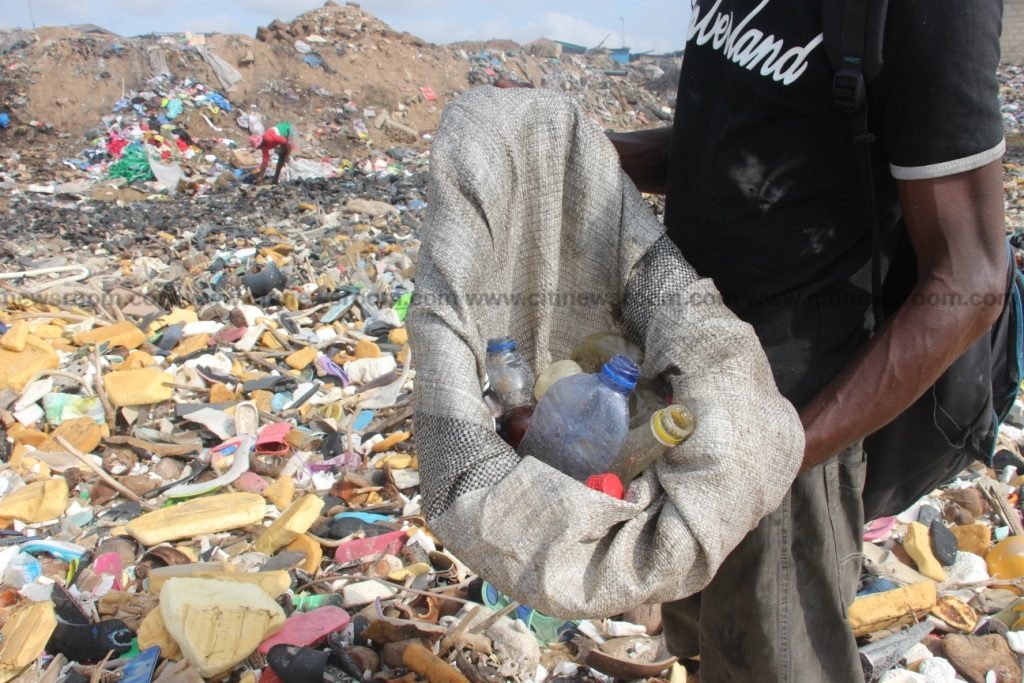
Kwesi Kyei, in his early 30s, was picking up plastic bottles from the Jamestown beach in Accra when I met him on a Wednesday morning. After five minutes, he had picked up nearly 10 empty plastic bottles which he collected into a dirty white sack.
For every kilo his bottles weigh, he is paid 50 pesewas (10 cents) and has ever made as much as GH¢ 40 ($8) on a good day, that is about 80 kilos of plastic bottles collected from the beach.
“I have some customers who buy it. They tell me they take it to Tema and use it for various purposes,” he said.
“I come here every day to pick the bottles and I get enough here,” he added.

From this occupation he earns enough to get by and support his torchlight sales business, which he runs in the evenings.
Kwesi Kyei wasn’t the only one collecting plastic bottles from the Jamestown beach. There were at least three other people doing same that morning.
The Jamestown beach is one of the many popular public beaches in Accra.
Jamestown, where the beach is located, is described by some historians as the birthplace of Ghana’s capital, Accra.
The community has a rich history with important monuments such as the Ussher Fort and James Fort dating back to the 17th Century when slavery was rife in Ghana.
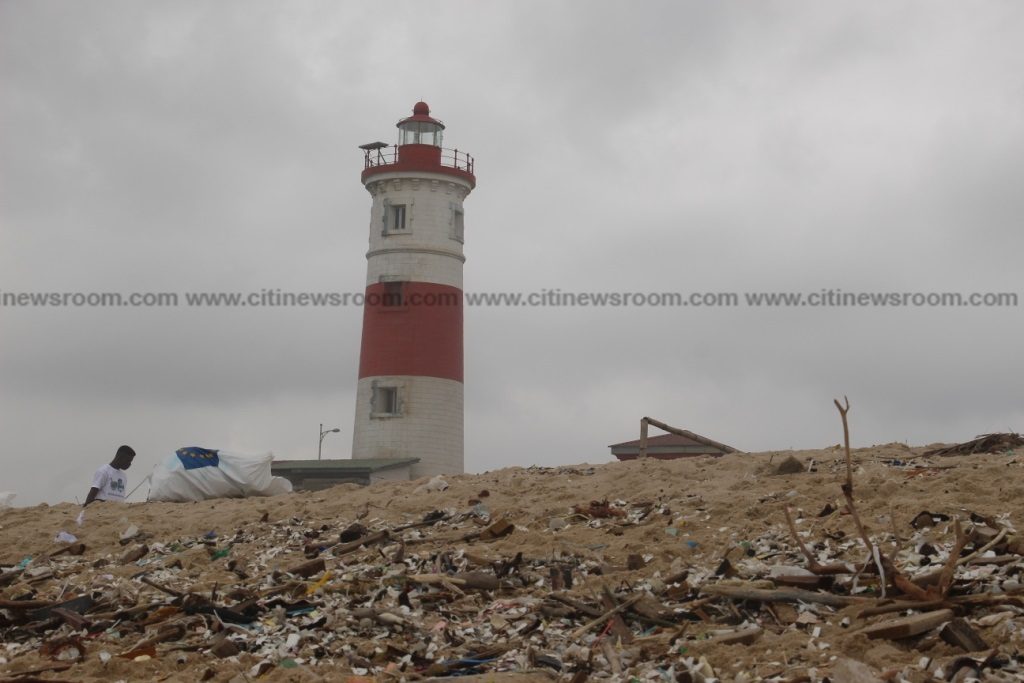
These monuments attract tourists from all over the world, and the beach serves as an important complement to their tour experiences in the community, but, the current state of the beach leaves much to be desired and a major setback to local tourism.
Sandals, empty water sachets, plastic bottles, toys, glass bottles, polythene bags, and disposable cups, coconut husks, and styrofoam are among the common waste materials found along the beach.
Heaps of organic and inorganic waste, producing irritating smell, could be seen all along the beach area, making it unattractive for sunbathing, swimming, or exercising.
“How can tourists come and swim here? You can’t swim here. If they want to swim they go to Labadi Beach or Kokrobite beach and the others because those places are neat,” said Charles Quaye, a businessman who has been living in the community for more than 30 years.
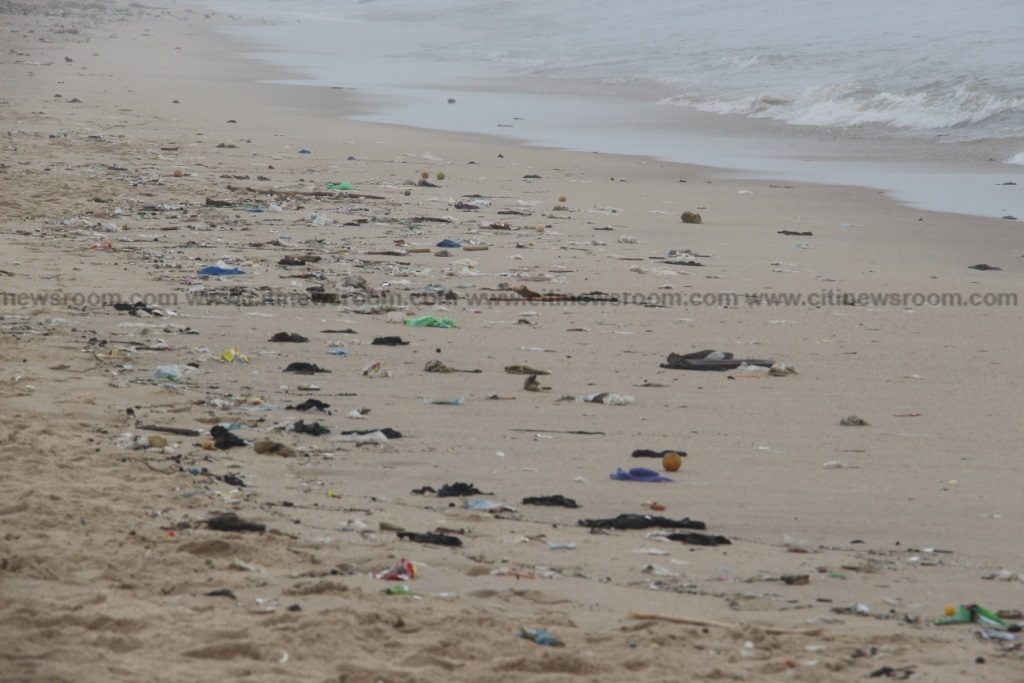
“About 25 years ago, if you are descending from the Lighthouse, people remove their slippers and shoes and walk along the beaches but now you can’t remove your slippers and walk along the beach… This is not the beach we came to meet, it’s not what we grew up seeing,” he said.
With every sea wave came waste materials, commonly black polythene bags that settle at the shore.
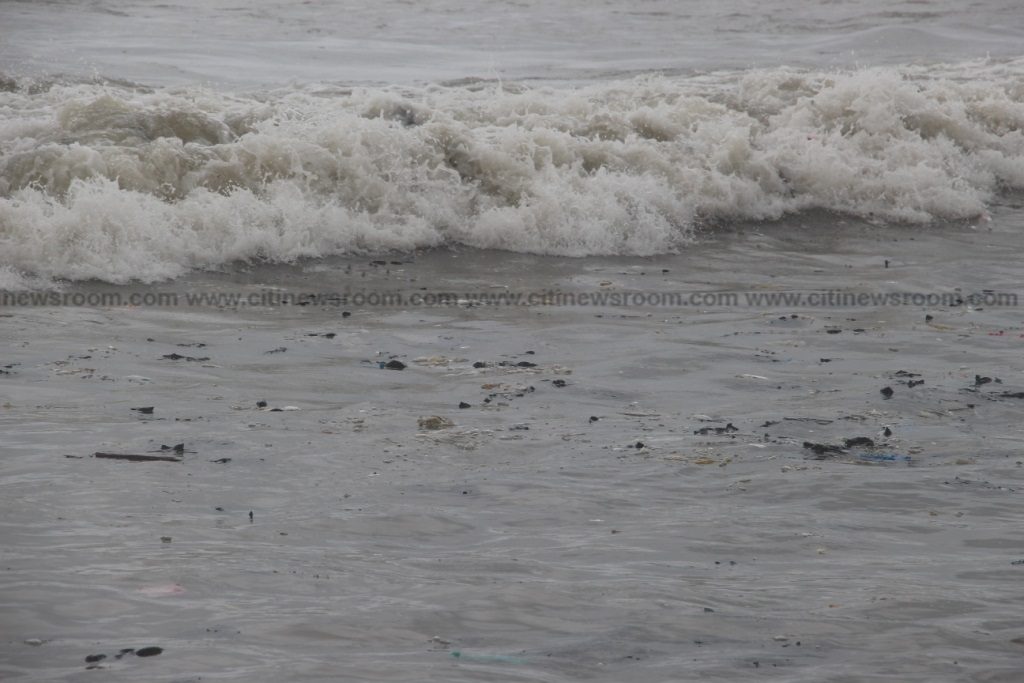
The Korle Lagoon, fed by the Odaw River which collects storm water runoff from most parts of Accra and linked to the Gulf of Guinea at Jamestown, is a major polluter of the sea and consequently the beach.
The lagoon, which travels through slums such as Agbogbloshie, and Old Fadama is chocked with waste materials, and seriously silted.
The waste materials get into the sea whenever it rains or when high tides draw the sea to meet with the lagoon.
Although there is evidence to some insanitary activities by the coastal dwellers here, locals deny responsibility for the filth on the beach.
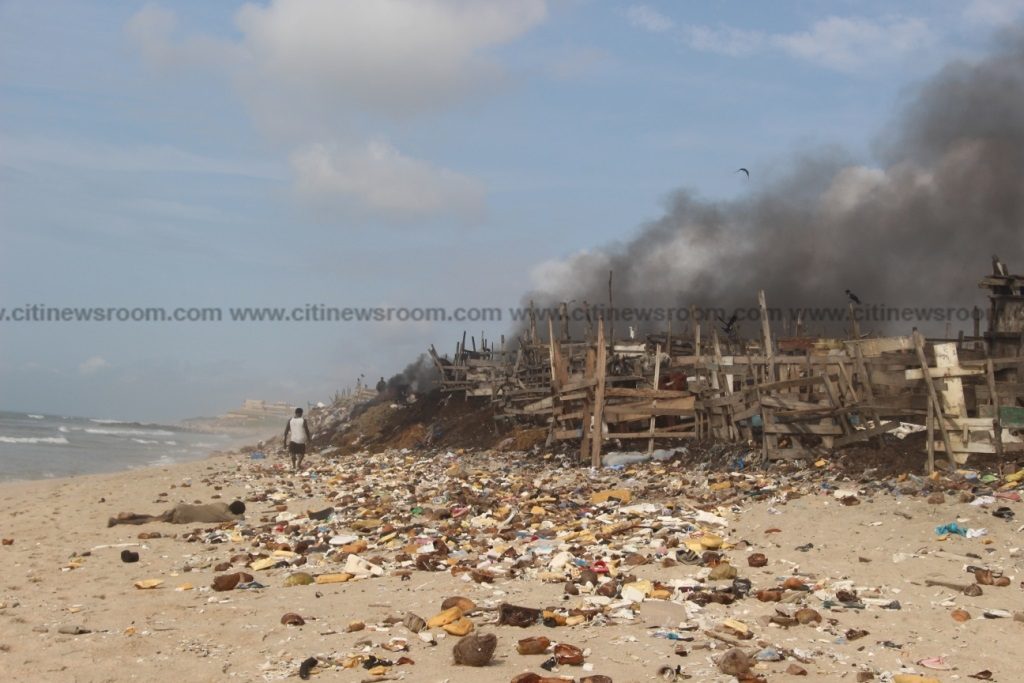
There is a significant growth of makeshift structures in an unplanned manner around the beach with no proper drainage system there.
“The waste is not from here. It’s from afar not from here. There are many big gutters full of waste materials that flow into the Korle Lagoon and then into the sea so the waste comes to the beach all the time,” Gifty Larbi, a fishmonger at Jamestown said.
The problem is compounded by the incessant open defecation along the beach.
Within an hour, I had seen four men, at various parts of the beach openly defecating. This is despite the fact that there are two public toilet facilities within a 30-meter radius, both charging a fee of 50 pesewas (10 cents) per use.
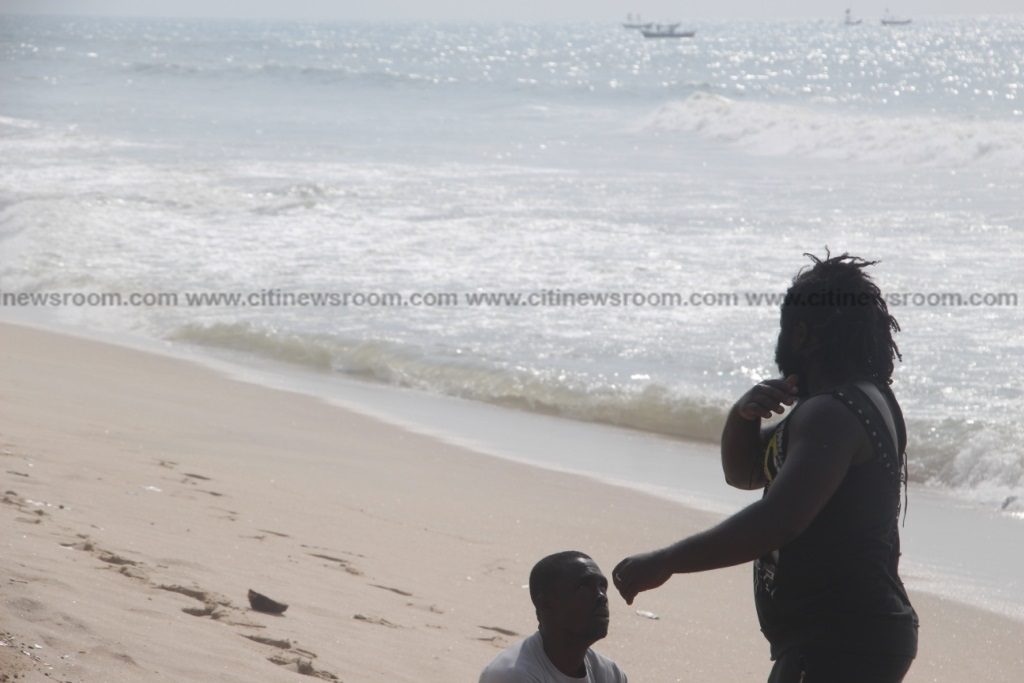
The close proximity of the open defecation to fishing activities also raises serious health concerns as fishermen pull out their harvest through the polluted coast.
The insanitary conditions at the beach present an extremely difficult task for coastal sanitation officers recruited by the Ashiedu-Keteke sub-metro, under the Accra Metropolitan Assembly (AMA) in whose jurisdiction the Jamestown beach falls.
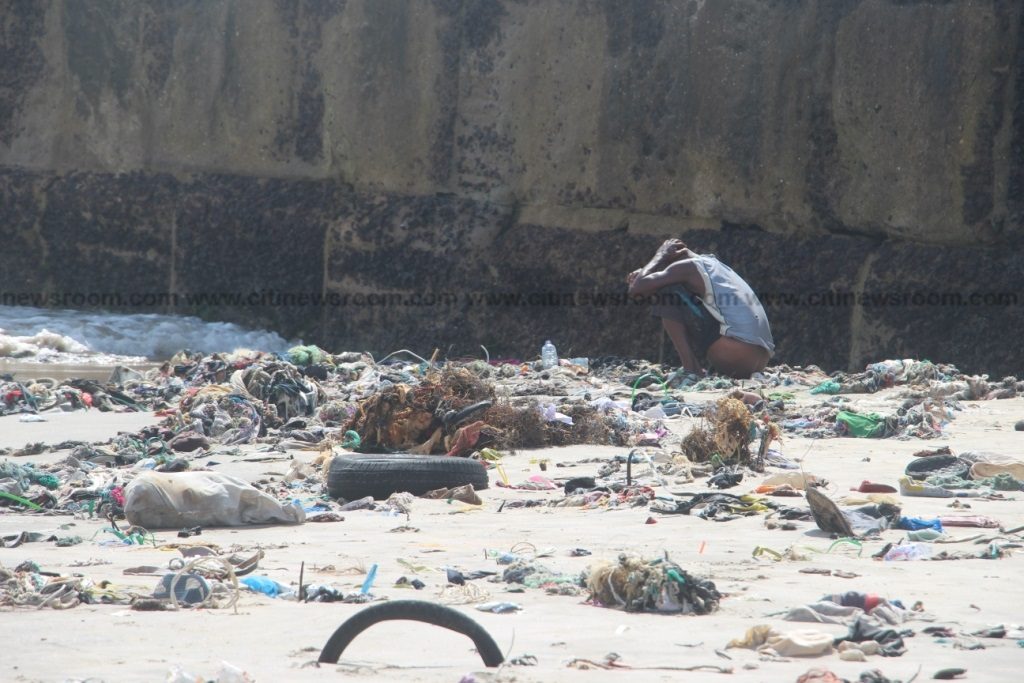
I met Christopher Quashigah, a sanitation taskforce officer assigned to clean the beach with two other colleagues.
Like his colleagues, he had no proper working gear.
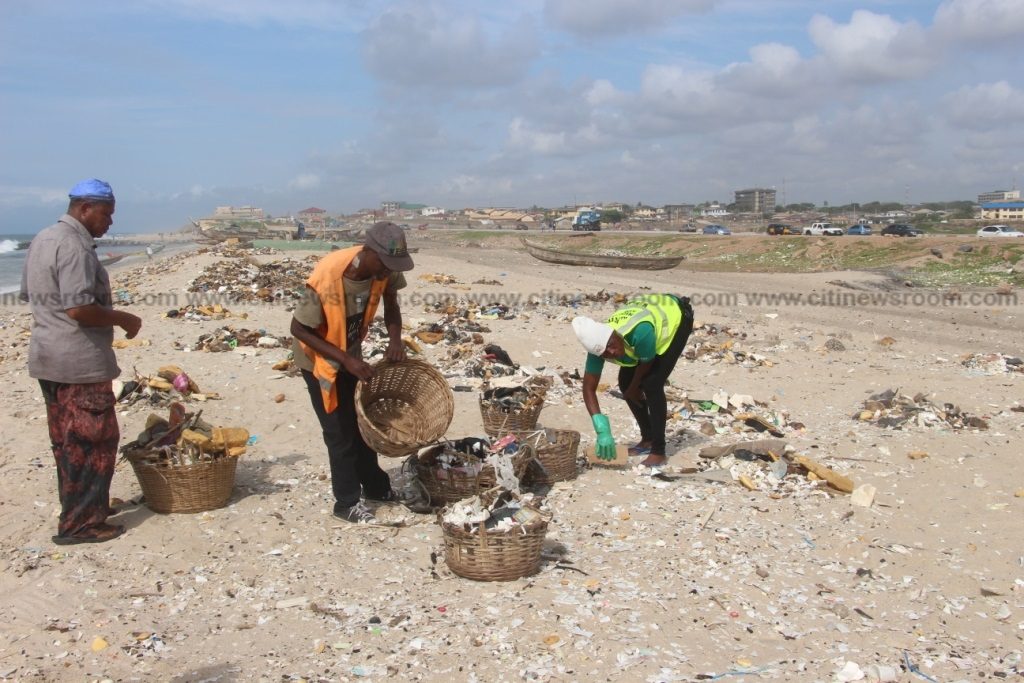
They are responsible for cleaning the beach every morning by gathering and collecting waste materials for proper disposal inland, but they could only gather and burn the waste collected few meters away from the beach.
“Some people bring rubbish from the house and throw it here at dawn before we get here and because we are not many, it creates a lot of problems for us… Some people also still come here to defecate,” said Quarshigah.
“We just take it [the rubbish] and burn it but now the town people say we shouldn’t burn the rubbish here,” he lamented.
The Chairman of the Sub-Metro, Seth Raymond Tettey, said they are trying to do more to address the problem of poor sanitation at the beach but the source of the problem, which is open drains choked with waste materials inland, must be looked at more critically.
“We organize frequent cleanup exercises at the beach, however there are a few guys I have deployed to the beach who gather filth and stop people from defecating at the beach. Despite what we currently do, we still have more room for improvement,” he said.
In Keta
About 185 kilometers away from Jamestown is Keta, another coastal community located in the Volta Region.
The situation in Keta was much different. It was cleaner compared to Jamestown, but was littered with many polythene bags with open defecation along the beach being a major environmental challenge.
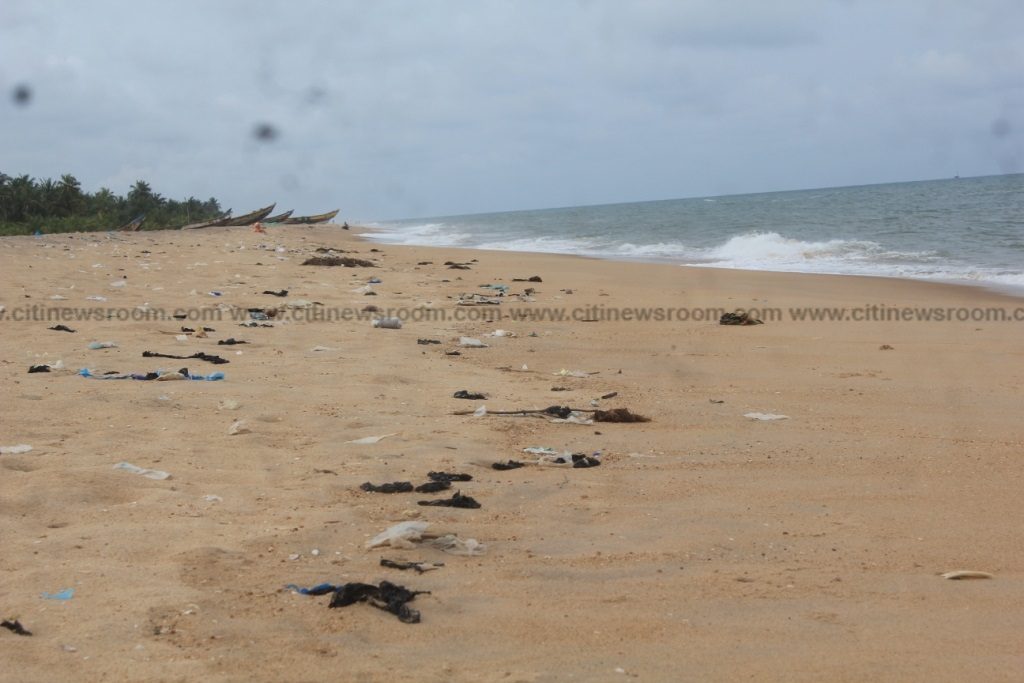
“The sanitation issue here is of major concern to us. We undertake clean-up exercises regularly depending on our financial strength in motivating the fishermen and some young men,” said the Chief Fisherman for Tegbi, in the Keta Municipality, Togbui Woadi Agboado.
Since his inauguration as the chief fisherman in March 2018, he organizes fishermen under his authority and some youth to clean up their portion of the beach every first Saturday of each month.
“We’ve have been doing our best to deal with the sanitation problem here because it really affects we the fishermen. When the fishermen return from sea, and they start dragging their harvest in the fishing nets, they drag the nets over the faeces on the beach and this can cause sickness,” Togbui Agboado said.
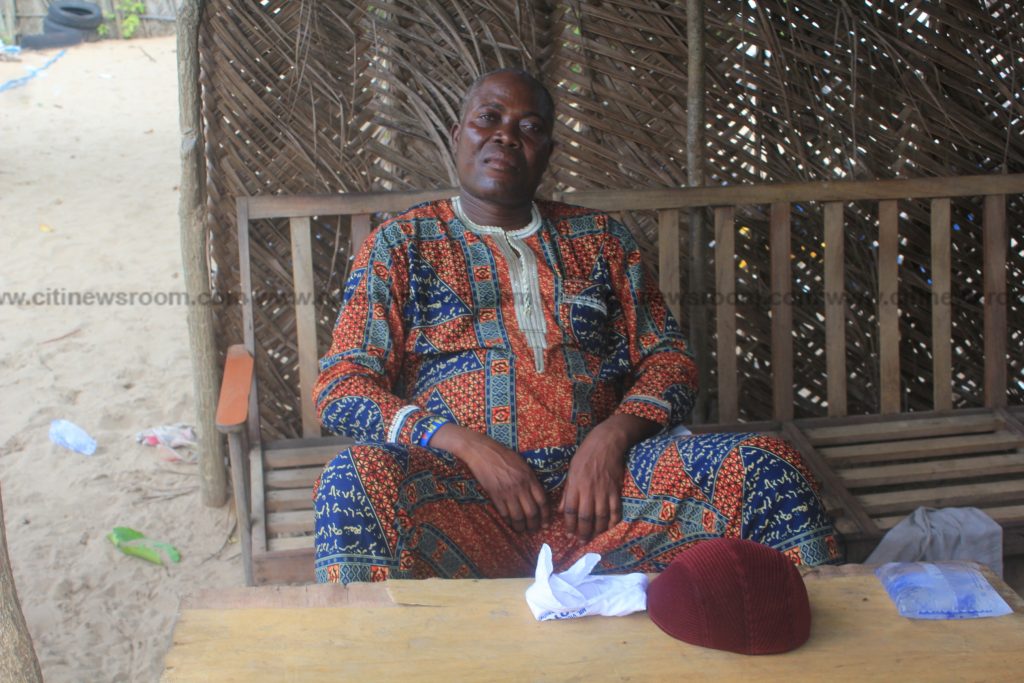
Domestic waste in the municipality is either collected by waste management companies or buried but Togbui Agboado believes that some people dump waste into the sea in nearby communities.
No public toilet
From the Tegbi end of the beach to Dzelukope, as well as in Vodza, there was no public toilet in close proximity to the beach. With very few houses having toilets, the old, young men and women move to the beach to defecate openly.
“I have tried to work with the various stakeholders to work on getting a public toilet here but I’ve not received the needed support,” Togbui Agboado lamented.
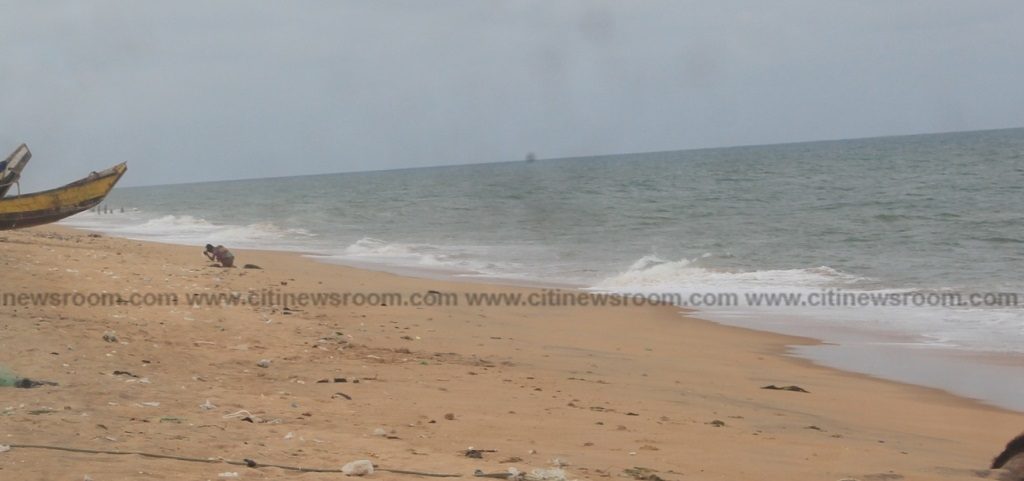
The latest District Report put together by the Ghana Statistical Service in 2010 said nearly 50% of residents did not own toilet facilities.
A local radio presenter at Jubilee FM, Emmanuel Gameli said the local assemblies must consider constructing public toilets at vantage points along the beach to stop open defecation.
“From Woe to Keta there is no public latrine along the coast and majority of the people go to the beach to ease themselves and this causes more harm to the fishermen who wake up at dawn to go fishing. It is for the local assembly to construct some public latrines at vantage points to stop it,” he said.
Absent coastal sanitation officers
The Government of Ghana in 2009 launched an elaborate programme in collaboration with Zoil Services Limited, a subsidiary of Zoomlion Ghana Limited, to tackle the problem of poor sanitation on the country’s beaches.
That partnership however ended in 2012 under unusual circumstances. Although no official reason has been given for the collapse of the programme, there are suspicions that the programme had to be stopped due to high indebtedness to the recruited personnel.
Zoomlion Ghana Limited was not available for comments on the collapse of the programme at press time.
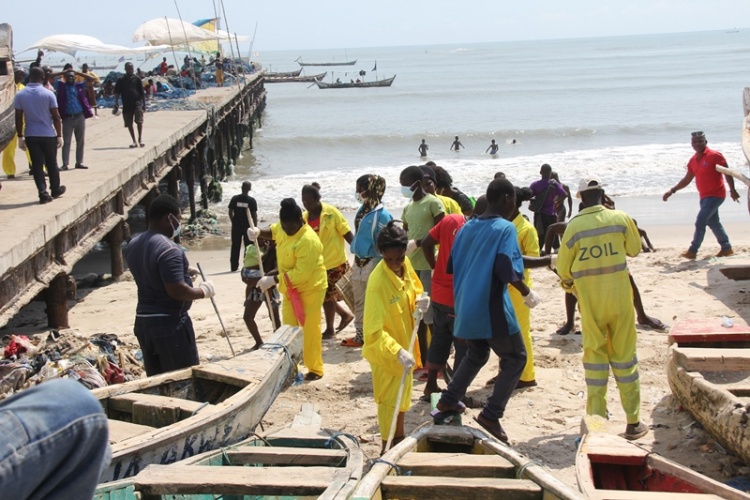
Records from the national budgets between 2011 and 2014 showed that at least GH¢38 million had been earmarked for the services of the coastal sanitation officers, known as Eco-brigades, who were recruited to ensure clean beaches in various metropolitan and district assemblies in the country along the coast.
“When the Zoil people were working here, even if you drop sugar cane they will force you pick it and dispose of it properly.They also educated us on what to do in keeping good sanitation which really helped us,” said, Togbui Woadi.
The Environmental Officer for the Keta Municipal Assembly, Jeremiah Zita lamented that although his outfit is doing its best to ensure that the beach is clean, their efforts have not yielded much positive results as the eco-brigades did.
“We had the eco-brigade officers who were in charge of the coast and things were nice… But after it folded up the problem is back again. Education is the major thing we’re doing now. We cannot build toilet for them so we encourage them to build it themselves. We are also trying to enforce the law; when we get you defecating, we have a spot fine of GH¢ 50 ($10) for you to pay or we take you to court and it is deterring some people,” he said.
The Axim problem
At Lower Axim in the Western Region, the stench of human excreta and solid waste on the beach could not be missed.
The beach is littered with discarded fishing nets, destroyed electronic gadgets, empty water sachets and other domestic waste.
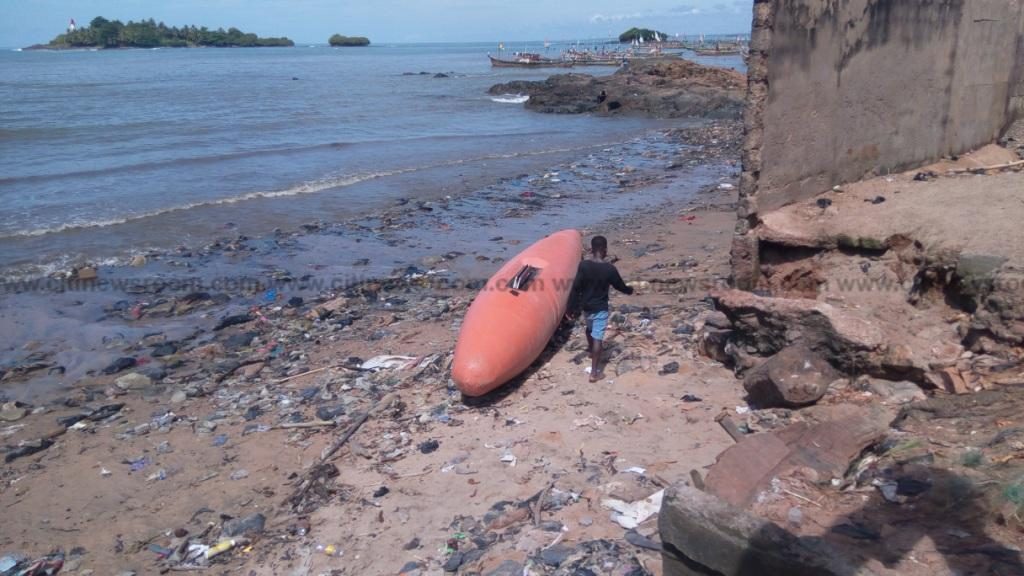
Children played casually amidst the chaos of waste, while fishermen and fishmongers went about their trade as usual.
Under the very unhygienic conditions, some of the mongers split the morning’s catch on the bare floor for sale to others.
“Some people deliberately sweep from their homes and come and dump the waste here especially at dawn. The open defecation situation is very terrible. We are supposed to be sitting here to relax as we wait for the fishermen to return, but it is not the case,” a fishmonger, Monday, said from his ‘Newcastle Shed’ at Lower Axim.
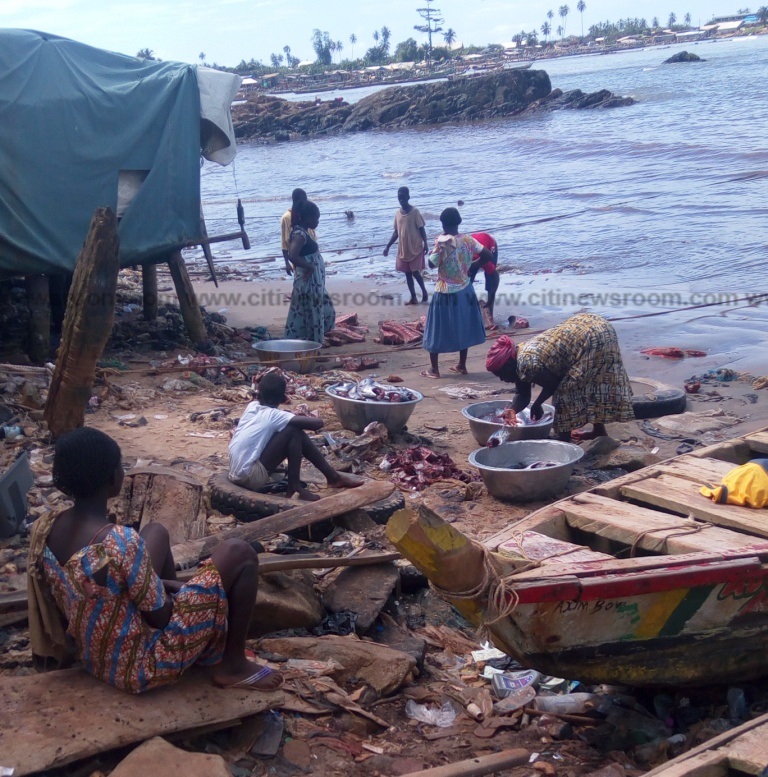
He added that, “it is not a pleasant sight at all. When the fish is brought, this is the same place we divide and sell them and so it is not good. We are waiting for a special task force to be set up to tackle this problem because it is not fair that fish that will be consumed by others will be taken from a beach like this.”
A resident, Justina, expressed fears that there would one day be a major disease outbreak due to the sanitation situation.
“Occasionally when there is an upcoming event especially a festival, they just gather the waste at a section of the beach, take some inland to be burnt and push the rest into the sea. This has health risks especially having many children going to the beach to play and swim.”
The climate change connection
Climate change as a globally recognized multiplier of health risks has the potential of exposing many Ghanaians, especially those who have some form of contact with such highly polluted beaches, to preventable disease associated with poor sanitation.
Already Ghana is ranked 93rd out of 180 countries facing risks of Climate Change-induced disasters according to Greenwatch’s 2019 Global Climate Risk Index, and the World Health Organization (WHO) predicts that diarrheal diseases which are quite common with communities along Ghana’s dirty beaches, will dramatically increase in direct proportion to the rising temperatures.
Rising temperatures, unpredictable rain pattern and extreme events such as floods create a favourable environment for pathogens from open defecation and solid waste to multiply.
Given that fish, which is in high-demand in the country is usually prepared in unhygienic environments along the beach, there are higher chances of faecal-environmental-oral contamination that leaves much of the population at some level of risk.
Rising sea levels also directly supports waste materials from nearby lagoons and drains being littered on the beach.
“The bulk of the waste we find along the beaches are from inland and so the only solution is to prevent their entry into the sea or reducing it by properly managing the waste inland,” said Dr. Ted Annang, a Senior Research fellow at Institute for Environmental and Sanitation Studies of the University of Ghana.
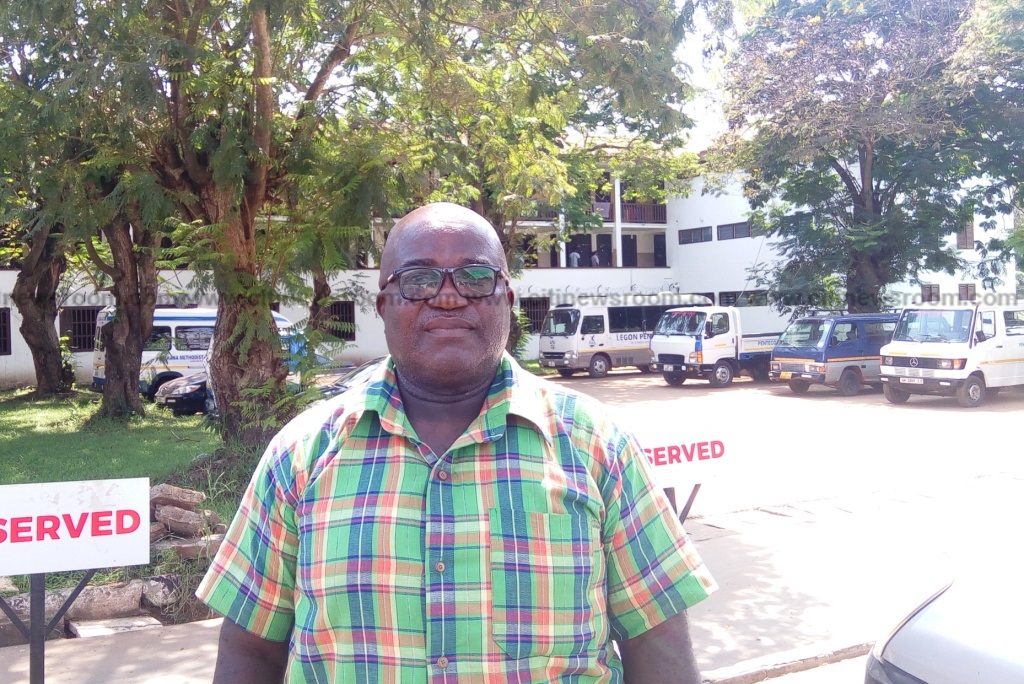
“Proper management practice is not being employed upland and that is creating the problem we are seeing at the beaches,” he said.
Threats to tourism
Owing to the declaration of 2019 as the “Year of Return,” over 400,000 tourists seeking to trace their ancestral roots are expected in the country by the end of the year, with majority visiting the former slave castles and forts along the coast from where their ancestors were shipped to the New World.
But the sight of the beaches is a major turn off for such people who may want to explore the coast. Some local tour guides, say they are embarrassed at questions about the sanitation situation at the beach.
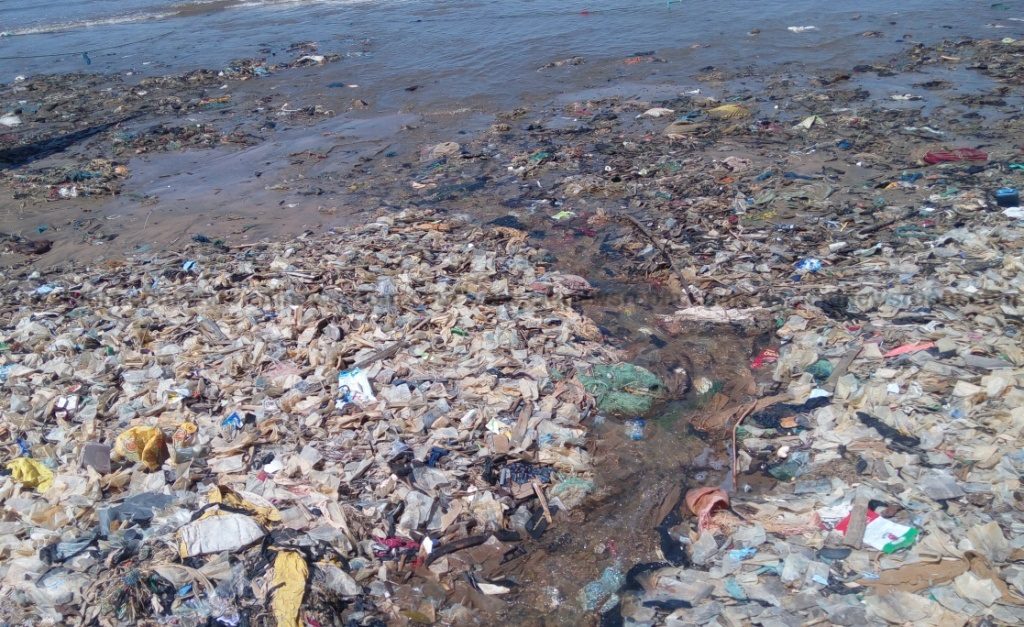
One of the guides who spoke on condition of anonymity said, “the sanitation situation is not good at all. When they ask you questions about these things, you don’t know what to say. It gives the tourists a certain negative impression about us as Ghanaians.”
“I may be wrong but when they see things like this, it affects the tip they may give you,” he remarked with a cheeky smile.
Many other petty local businesses depend greatly on foreigners’ patronage of the beaches to make ends meet.
“If the foreigners enjoy their visit to the beach and the castle, they are excited and encouraged to buy the local products from us. I think that if the beach were cleaner, a lot more of them can stay and relax more to buy from us,” said Ama, who sells Ghana-branded paraphernalia around the Cape Coast castle in the Central Region.
About the poor sanitation around the Cape Coast Castle, a tourist is quoted to have said in a 2018 news interview that, “I had heard of it before coming to Ghana and actually it’s a problem on public holidays at public places. I think that kind of behaviour is unacceptable and it is really off-putting. I wouldn’t go swimming or bathing on the beach.”
“I really love swimming and I really love the beach but I just never go to the beach here. Ghana has so many beautiful beaches and good places but to go to swim here…[no],” another tourist noted.
With the US and UK leading in terms of numbers for inbound arrivals for tourism, each tourist reportedly spends an average of $1,850 in the country and this goes to benefit local businesses.
Dirty and polluted beaches have the potential of substantially reducing this, leaving local businesses and individuals whose livelihoods depend on tourism in jeopardy.
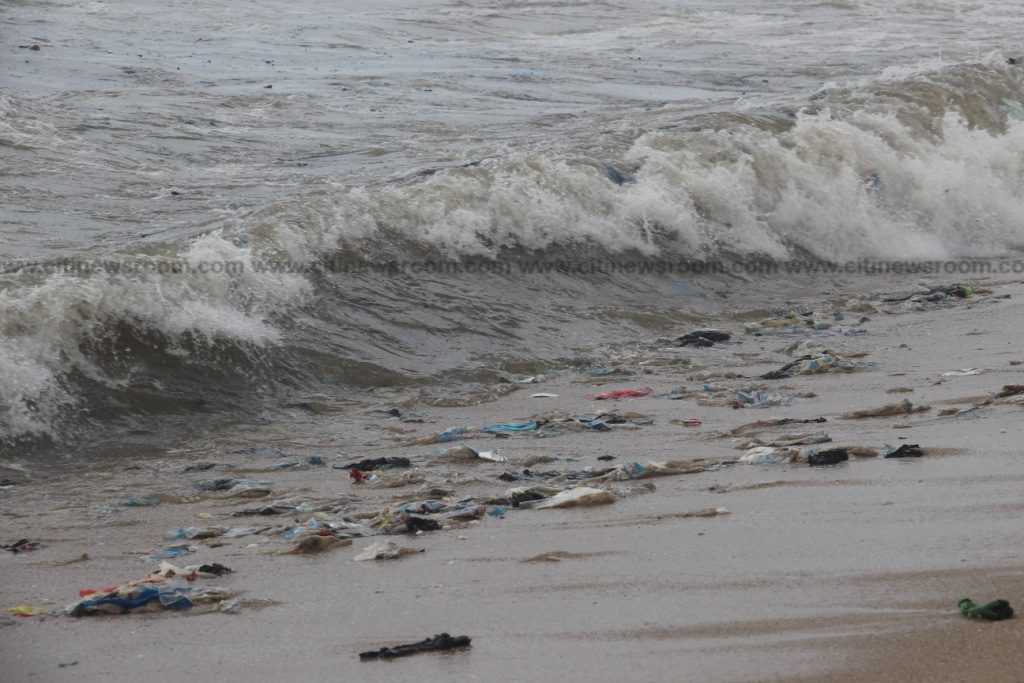
Threats to human health
The situation along the beaches poses serious health risk to residents.
Jamestown for instance, has consistently been considered a flashpoint for Cholera outbreaks especially during the rainy season.
At the Korle-Bu Polyclinic, which serves residents of Jamestown and its environs, cases of Cholera and other sanitation-related diseases are common.
According to Dr. Magdalene Owusu-Atuahene, a doctor at the health facility, public education may help reduce the incident of pollution at the beach but enforcement of local sanitation laws is also critical.
“Those found to be responsible for polluting the environment must be punished and also environmental health officers must be firm in carrying out their duties,” she said.
At least 84 people from Jamestown were hospitalized in the last major Cholera outbreak in Ghana in 2015.
The victims were over 200 the previous year.
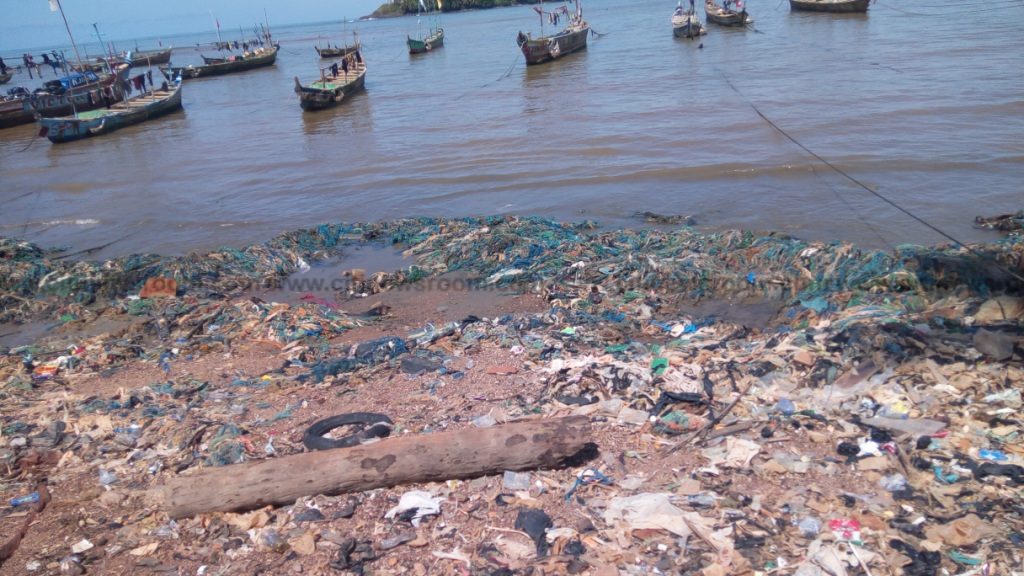
Unfortunately, like the Korle Lagoon, other lagoons and major drains in Accra are choked with waste materials that leak into the sea at various connection points, leaving the constant problem of waste at the beach.
Dr. Ted Annang is worried that, plastics are major pollutants of the sea and form a majority of the waste found along the beach.
“We should be employing a practice that will determine which form of waste gets into the sea. The plastics should not be allowed at all because they cannot degrade… We cannot prevent wastewater from entering the sea but we need to block the route so that the solids, particularly plastics do not enter the sea,” he said.
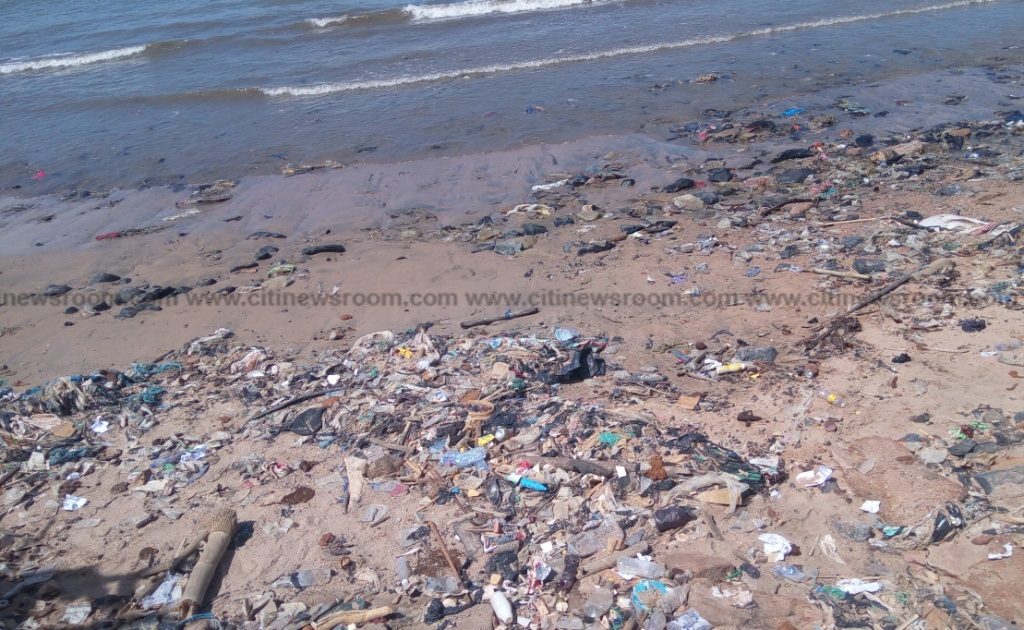
Dr. Annang notes that recent scientific findings of micro plastics in the sea, inside and attached to fish skins pose health risks to humans as they move through the marine food chain.
“There is evidence that plastics found in minute sizes is getting attached to the flesh of fish and when this is eaten, it leaves us with some health implications…there are some types of solid waste that degrade when they get into the sea, but plastics do not.”
Conclusion
Ghana’s president, Nana Akufo-Addo in April 2017 vowed to make Accra the cleanest city in Africa by 2021, but that target currently stands barely achievable given the state of the capital’s public beaches.
Stopping open defecation and proper management of inland waste in the Western, Central, Volta and Greater Accra Regions has become extremely important to ensure cleaner beaches in the country.
Cleaner beaches will not only increase aesthetic value but also directly improve personal and national economies especially through foreign exchange. It will also ensure a healthier population and safer environment.
–
This investigation was done with the support of International Centre for Investigative Reporting (ICIR) and Ford Foundation.
The post Jonas Nyabor writes: Solid waste, faeces taking over Ghana’s public beaches appeared first on Citinewsroom - Comprehensive News in Ghana, Current Affairs, Business News , Headlines, Ghana Sports, Entertainment, Politics, Articles, Opinions, Viral Content.
Read Full Story
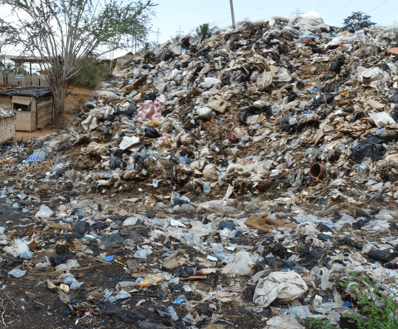


















Facebook
Twitter
Pinterest
Instagram
Google+
YouTube
LinkedIn
RSS